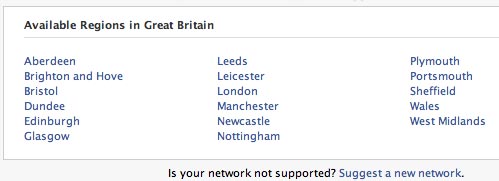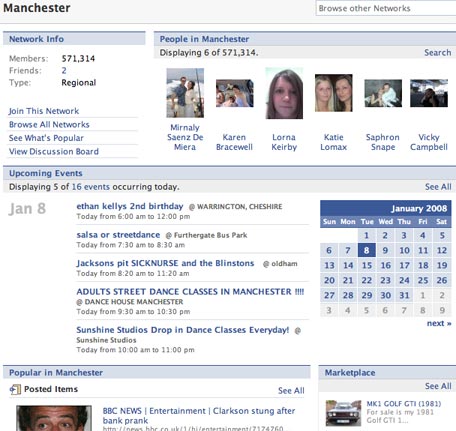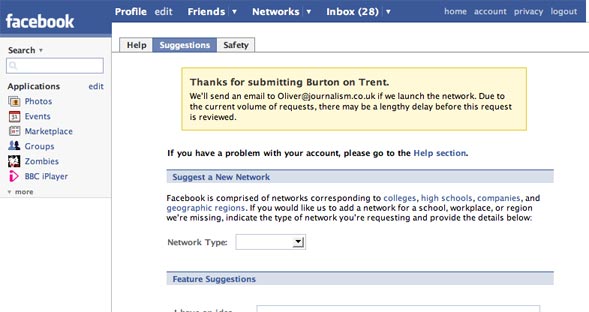The Guardian may be adopting strategies to make itself more Facebook-friendly but the lack of truly local geographical networks on the social networking site makes it more difficult for smaller papers to make great use of it.
The UK currently has 17 regional networks that users can become part of, here they are:

The regional networks, which unsurprisingly centre on larger towns and cities, offer reporters a great ‘in’ to the online community on their patch. A reporter working for the Manchester Evening News, for instance, or one of its smaller titles in the Greater Manchester area is at a distinct advantage over a reporter working on a paper in a smaller town:

Just a brief, cursory glance at the Manchester group throws up leads for several potential stories amongst its 500,000 plus members. The ‘See what’s popular’ feature and the discussion board make it a simple place to seed stories as well as one in which to ask for information and pick up leads. But where would you go if you lived in Burton on Trent?
Burton is a town in Staffordshire that – if you’ve defining it in terms of Facebook regions – is slap bang between Nottingham and West Midlands. Not much use then if you’re a reporter on the Burton Mail.
Burton has 103 groups related to it on Facebook – a lot of ground to cover for any hack – but like many other towns across the UK it has no network and Facebook doesn’t allow users to establish there own networks. Users have to make that request to the site:

If Facebook gave it’s users the ability to create these networks themselves it would solve a lot of headaches, but don’t expect that to happen in a hurry. So come on reporters on papers in Burton, Derby, Reading, Cardiff, Norwich and the like. Get a campaign going to get your town recognised as a network on Facebook. It can make the day job a hell of a lot simpler.


